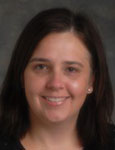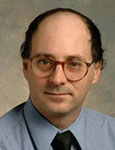2023 CNS Research Day

ATTENDEE REGISTRATION IS NOW CLOSED.
If you are interested in registering, please reach out to Alexandra Kylindris by email.
On Tuesday, May 16th 2023, the Department of Clinical Neurological Sciences will host its 20th annual CNS Research Day. The full-day event features a series of poster and oral presentations from our residents, graduate students, PhD candidates and postdoctoral fellows. We will also host a distinguished researcher who will present the keynote address. Attendees of the event are the Department’s faculty, including neurosurgeons, neurologists, affiliated radiologists, pathologists and imaging researchers.
Event Program
Please see the 2023 CNS Research Day event program here.
Venue
King's University College
266 Epworth Avenue, London, ON N6A 2M3
CNS Research Day will be held at the Kings Centre (Main level map, Lower level map).
Free parking is available. The closest parking lot is P3 (map).
Schedule of Events
Please note: This is a draft schedule of events and the timings may change slightly.
| 8:00 to 8:20 a.m. | Registration and Continental Breakfast | Garron/Spriet Lounge |
| 8:25 to 8:35 a.m. |
Opening Remarks Dr. David Steven, Richard and Beryl Ivey Chair, Department of Clinical Neurological Sciences |
Kenny Theatre |
| 8:40 to 9:35 a.m. |
Keynote Presentation The Vagal Rhizopathies: 2 new diseases that bridge ENT and Neurosurgery” Dr. Christopher Honey, Professor and Head of the Division of Neurosurgery, University of British Columbia |
Kenny Theatre |
| 9:35 to 9:50 a.m. |
Refreshment Break | Garron/Spriet Lounge |
| 9:55 to 11:05 a.m. |
Oral Presentation Session #1 A series of 5-minute presentations. Each presenter will be allotted 3 minutes for questions. |
Kenny Theatre |
| 11:10 to 11:35 a.m. |
Oral Parallel Poster Session #1 A series of 2-minute presentations. Q&A will commence during refreshment break |
Basement Classrooms KC 005 & KC 006 |
| 11:35 to 11:50 a.m. |
Refreshment Break Poster presentation Q&A |
Garron/Spriet Lounge |
| 11:55 a.m. to 1:05 p.m. |
Oral Presentation Session #2 A series of 5-minute presentations. Each presenter will be allotted 3 minutes for questions. |
Kenny Theatre |
| 1:05 to 1:50 p.m. |
Lunch | Garron/Spriet Lounge |
| 1:55 to 3:00 p.m. |
Oral presentation Session #3 A series of 5-minute presentations. Each presenter will be allotted 3 minutes for questions. |
Kenny Theatre |
| 3:05 to 3:30 p.m. |
Oral Parallel Poster Session #2 A series of 2-minute presentations. Q&A will commence during refreshment break. |
Basement Classrooms KC 005 & KC 006 |
| 3:30 to 3:50 p.m. |
Refreshment Break Poster presentation Q&A |
Garron/Spriet Lounge |
| 3:55 to 4:00 p.m. |
Closing Remarks and Awards Dr. Elizabeth Finger, Research Director, Department of Clinical Neurological Sciences |
Kenny Theatre |
Attendee Registration
Registration is now closed.
Registration Deadline: Friday, May 5th
Keynote Speaker
 Dr. Christopher Honey is a Professor and Head of the Division of Neurosurgery at the University of British Columbia. He obtained his medical degree from the University of Toronto and his doctoral degree from Oxford University as a Canadian Rhodes Scholar. He completed his Royal College training in neurosurgery in Vancouver in 1995 and became a diplomat of the American Board of Neurological Surgeons in 2000. He has completed an additional year of training at Harvard Medical School and is a Scholar in Surgical Leadership.
Dr. Christopher Honey is a Professor and Head of the Division of Neurosurgery at the University of British Columbia. He obtained his medical degree from the University of Toronto and his doctoral degree from Oxford University as a Canadian Rhodes Scholar. He completed his Royal College training in neurosurgery in Vancouver in 1995 and became a diplomat of the American Board of Neurological Surgeons in 2000. He has completed an additional year of training at Harvard Medical School and is a Scholar in Surgical Leadership.
His research is focused on the treatment of movement disorders and pain. He headed the world’s first trial of DBS for spasmodic dysphonia and published the results in 2021. He was the first physician to recognize and successfully treat hemi-laryngopharyngeal spasm (HELPS syndrome) in 2014. He discovered and successfully treated the first person in the world with VANCOUVER syndrome in 2019. He has made fundamental changes to the understanding of human pain pathways.
In 2016, Dr. Honey was elected the President of the Canadian Neuromodulation Society (2016-2019) and elected President of the British Columbia Section of Neurosurgeons (2016-2019). In 2018, Dr. Honey was elected President of the World Neurosurgical Federation for Cranial Nerve Disorders. This group studies conditions such as Trigemnial Neuralgia, Hemifacial Spasm, Glossopharyngeal Neuralgia and the newly described Hemi-Laryngopharyngeal Spasm (HeLPS) and has a major interest in Microvascular Decompression (MVD) neurosurgery.
Dr. Honey continues to work with the Canadian Football League Players Association and is their Neurological Director.
Dr. Honey has been invited to lecture at Universities and Meetings around the world (over 200 presentations on 6 continents). He has a strong commitment to teaching and has had the pleasure to train 25 neurosurgeons from around the world during their one-year fellowship with him in Vancouver. He has provided pro bono, humanitarian surgical care in Liberia (performing the first successful brain tumor removal, the first spine operation, and the first pediatric shunt) and in Ghana. He has been invited to operate in China, Indonesia, and performed the first DBS in Kuwait.
Dr. Honey’s book, The Tenth Nerve, published by Penguin Random House Canada, is now available at Indigo, local bookstores and drchrishoney.com. It is an homage to seven patients who taught him more about medicine than a lecture or textbook.
Judges
In addition to having our esteemed Keynote Dr. Christopher Honey we are thrilled to announce our 2023 judges;
 DEEPA DASH, MBBS, MD, DM (NEUROLOGY)
DEEPA DASH, MBBS, MD, DM (NEUROLOGY)
Dr. Deepa Dash completed her neurology residency at All India Institute of Medical Sciences, New Delhi and was an academic faculty in the same institute up till 2019. She subsequently completed a fellowship in movement disorders at the University of Ottawa. She has expertise in diagnosis and clinical management of patients with complex movement disorders and also in implementation of advanced therapies like deep brain stimulation and continuous infusion of levodopa/carbidopa intestinal gel. During her fellowship, she was awarded grant from Parkinson’s Society of Canada to pursue research in understanding the impact of an integrated care program on people with Parkinson’s disease. She has also gained training in clinical epidemiology and completed Graduate Diploma in Clinical Epidemiology from McMaster’s University. She has authored over 50 peer-reviewed publications and is a reviewer in many reputed journals.
 JENNIFER MANDZIA, MD, PHD, FRCPC
JENNIFER MANDZIA, MD, PHD, FRCPC
Dr. Jennifer Mandzia completed her PhD training in Neuroscience with Dr. Sandra Black at the University of Toronto. Her doctoral thesis was on functional MRI (fMRI) in patients with Mild Cognitive Impairment (MCI) and structural neuroimaging correlates. She then received her MD from the University of Ottawa and completed her Neurology training at Western University. After residency, Dr. Mandzia undertook a year of fellowship in Cerebrovascular Disease, at the University of Calgary Stroke Program, before returning to London to join the Department as a staff neurologist specializing in Stroke in 2013.
 JOSEPH MEGYESI, MD, PHD, FRSCS
JOSEPH MEGYESI, MD, PHD, FRSCS
Dr. Joseph Megyesi received his MD from Western University in 1985. He then completed a comprehensive surgical internship and a Master's degree in Biochemistry, also at Western University. He did his neurosurgical residency at the University of Alberta in Edmonton, where he also received his PhD degree in Experimental Surgery. As part of his training, Dr. Megyesi completed a fellowship at Harvard University. Dr. Megyesi joined the Clinical Neurological Sciences Department at Western University in 1998 and specializes in neurosurgical oncology. He is chairman of the Scientific Program Committee at the Canadian Neurological Sciences Federation, sits on the Continuing Professional Development Committee at the Royal College of Physicians and Surgeons of Canada and is past-chairman of the board of the Brain Tumour Foundation of Canada. He is currently Professor in the Division of Neurosurgery at Western University.
Important Dates
January 24th Abstract submissions open
March 30th Abstract submissions close
Early May Notification to presenters of oral/poster acceptance
May 16th Research Day!
Abstract Submission Guidelines
Eligibility Requirements
Must have an author or contributor who holds a membership in CNS.
Abstracts should be no longer than 350 words and utilize the headings described below.
The presenter of all abstracts must be a trainee (for example, a undergraduate, graduate or medical student, resident, fellow).
Basic Information
Abstract Title, First Author, Additional Author(s) and Research Supervisor
Abstract Submission Criteria/Format
*based on the JAMA Structure for Abstract Submission
|
Importance: |
The abstract should begin with a maximum of two sentences explaining the clinical (or other) importance of the study question. |
|
Objective(s): |
State the precise objective or study question addressed in the report (e.g. "To determine whether..."). If more than 1 objective is addressed, the main objective should be indicated and only key secondary objectives stated. If a priori hypothesis was tested, it should be stated. |
|
Design and Participants: |
Describe the basic design of the study and include the specific study type (e.g. randomized clinical trial, cohort, cross-sectional, etc.) and intervention where applicable. State the clinical disorders, important eligibility criteria, and key socio-demographic features of patients (or other study participants). The number of eligible participants and how they were selected should be provided, including the number approached but who refused or were excluded. For selection procedures, these terms should be used, if appropriate: random sample (where random refers to a formal, randomized selection in which all eligible individuals have a fixed and usually equal chance of selection); population-based sample; referred sample; consecutive sample; volunteer sample; convenience sample. If matching is used for comparison groups, characteristics that are matched should be specified. In follow-up studies, the proportion of participants who completed the study must be indicated. |
|
Results: |
Summary demographic information (e.g. characteristics such as sex and age) and the number of study participants should be reported in the first sentence of the Results paragraph. The main outcomes of the study should be reported and quantified, including the final included/analyzed sample. When possible, present numerical results (e.g. absolute numbers and/or rates) with appropriate indicators of uncertainty, such as confidence intervals. Use means and standard deviations (SDs) for normally distributed data and medians and ranges or interquartile ranges (IQRs) for data that are not normally distributed. Avoid solely reporting the results of statistical hypothesis testing, such as P values, which fail to convey important quantitative information. For most studies, P values should follow the reporting of comparisons of absolute numbers or rates and measures of uncertainty (e.g. 0.8%, 95% CI −0.2% to 1.8%; P = .13). |
|
Conclusions and Relevance: |
Provide only conclusions of the study that are directly supported by the results. Give equal emphasis to positive and negative findings of equal scientific merit. Also, provide a statement of relevance indicating implications for clinical practice or health policy, avoiding speculation and overgeneralization. The relevance statement may also indicate whether additional study is required before the information should be used in clinical settings. |
Click here to download this information as a PDF.
Resources
Poster Printing Services:
Abstract Writing Tips & Tricks:
Event Sponsors
Thank you to our 2023 CNS Research Day event sponsors!

Hoffmann-La Roche Limited

Surgi-One Medical Technologies Inc
Award Winners
1st Place Resident (Platform)
The Primate Lateral Prefrontal Cortex as a Brain Machine Interface Target - Dr. Mohamad Abbass
2nd Place Resident (Platform)
Exploring the utility of the Western Aphasia Battery in distinguishing clinical phenotypes of primary progressive aphasia - Dr. Stanley Li
1st Postgraduate / Undergraduate (Platform)
Establishing a neuro-oncology animal model: patient-derived primary breast cancer brain metastasis cells in an immunodeficient rat - Dr. Niveen Fulcher
1st Graduate Students (Platform) - TIE
Quantitative magnetic resonance imaging of Parkinson’s disease and rapid eye movement sleep behaviour disorder - Dr. Erind Alushaj
Deep brain stimulation targeting using anatomical landmarks and machine learning - Dr. Alaa Taha
1st Place Resident (Poster)
Conceptual Development of an Implantable Transvenous Vagal Nerve Stimulator - Dr. R. Burnett Johnston
2nd Place Resident (Poster)
Surgical Management of Temporal Long-Term Epilepsy Associated Tumors (LEATs) - Dr. Alan Chalil
1st Postgraduate / Undergraduate (Poster)
In-vitro Validation of Spatiotemporally Dynamic Electric Fields for Brain Cancer Treatment - Dr. Abdulla Elsaleh
1st Graduate Students (Poster)
Seinfeld in the scanner: Examining the effects of aging and Parkinson’s disease on humor processing with fMRI - Dr. Margaret Prenger








